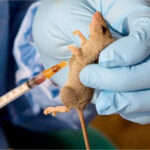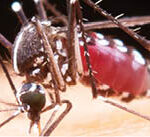Nigeria Centre for Disease Control has activated a “national emergency operations centre” to coordinate response to the latest outbreak of Lassa fever, as the number of infections continues to rise.
At least 195 people infected have tested positive for Lassa fever and 29 have been killed this January across 11 states, with Ogun, Kaduna and Borno reporting single deaths since Friday.
Nearly 9 in 10 of the confirmed cases come from Ondo, Edo and Ebonyi, where the NCDC activated state-level emergency operations centre in the wake of the outbreak.
NCDC says the increase in the number of cases reported at this time of year is “not unusual”, due to ecological factors.
“The Lassa fever virus is transmitted by rodents which can be found in our environment,” the centre’s director-general Chikwe Ihekweazu said in a statement.
“This contributes largely to the risk of spread that occurs in Nigeria and other countries with similar ecological factors.”
The national emergency operations centre includes representatives from the National Emergency Management Agency, Federal Ministry of Agriculture and Rural Development, Federal Ministry of Environment, World Health Organization, UNICEF, US Centres for Disease Control, and other partners.
Rapid response teams have deployed to support five of the affected states.
Health minister Osagie Ehanire led a delegation to Kano on Saturday after the death of two health workers infected with Lassa fever.
Lassa fever is largely transmitted through contact with items or surfaces contaminated with urine, faeces, saliva or blood of infected rats.
It can also be transmitted from person-to-person through contact with blood, urine, faeces and other body fluids of an infected person.
To minimise the risk of infection, members of the public are advised to ensure their environment is always kept clean to avoid contact with rodents.
Health care workers should maintain a high index of suspicion as Lassa fever can present with fever just like malaria and other illnesses.
Early symptoms are fever, headache, diarrhoea, abdominal pain, sore throat.
It is in very severe cases that the patient bleeds from body openings.
If a patient does not respond to treatment for malaria or other febrile illnesses after 48 hours, it is important to test immediately for Lassa fever.

 Join Daily Trust WhatsApp Community For Quick Access To News and Happenings Around You.
Join Daily Trust WhatsApp Community For Quick Access To News and Happenings Around You.

